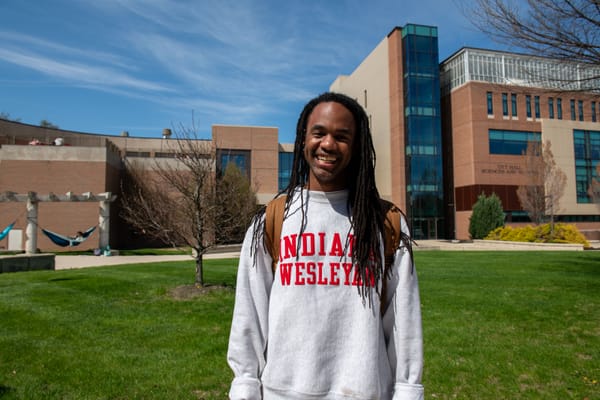Herman Baker: A Life of Praise
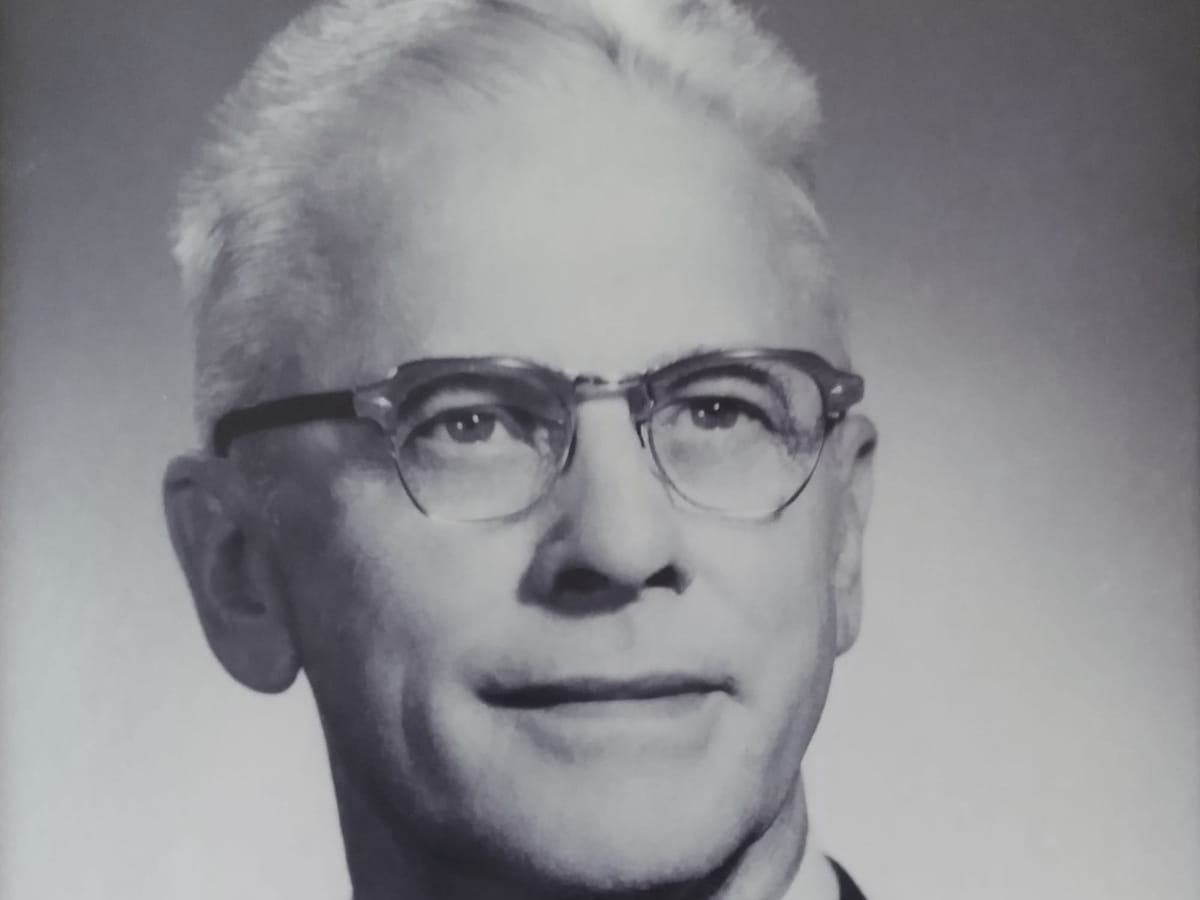
Herman Baker has been a part of Indiana Wesleyan University’s story since its earliest days. A lover of music from a young age, Baker became a freshman student in Marion College’s music program during the school’s first years. That same year, he helped found the Eurekans club and joined the Men’s Glee Club, just as fellow freshman Beth Williams was joining the Women’s Glee Club.
While Beth was an English major and a member of the Amphictyons (the Eurekans’ rivals), both freshmen shared a love of music and had strong family ties to the college through their respective fathers.
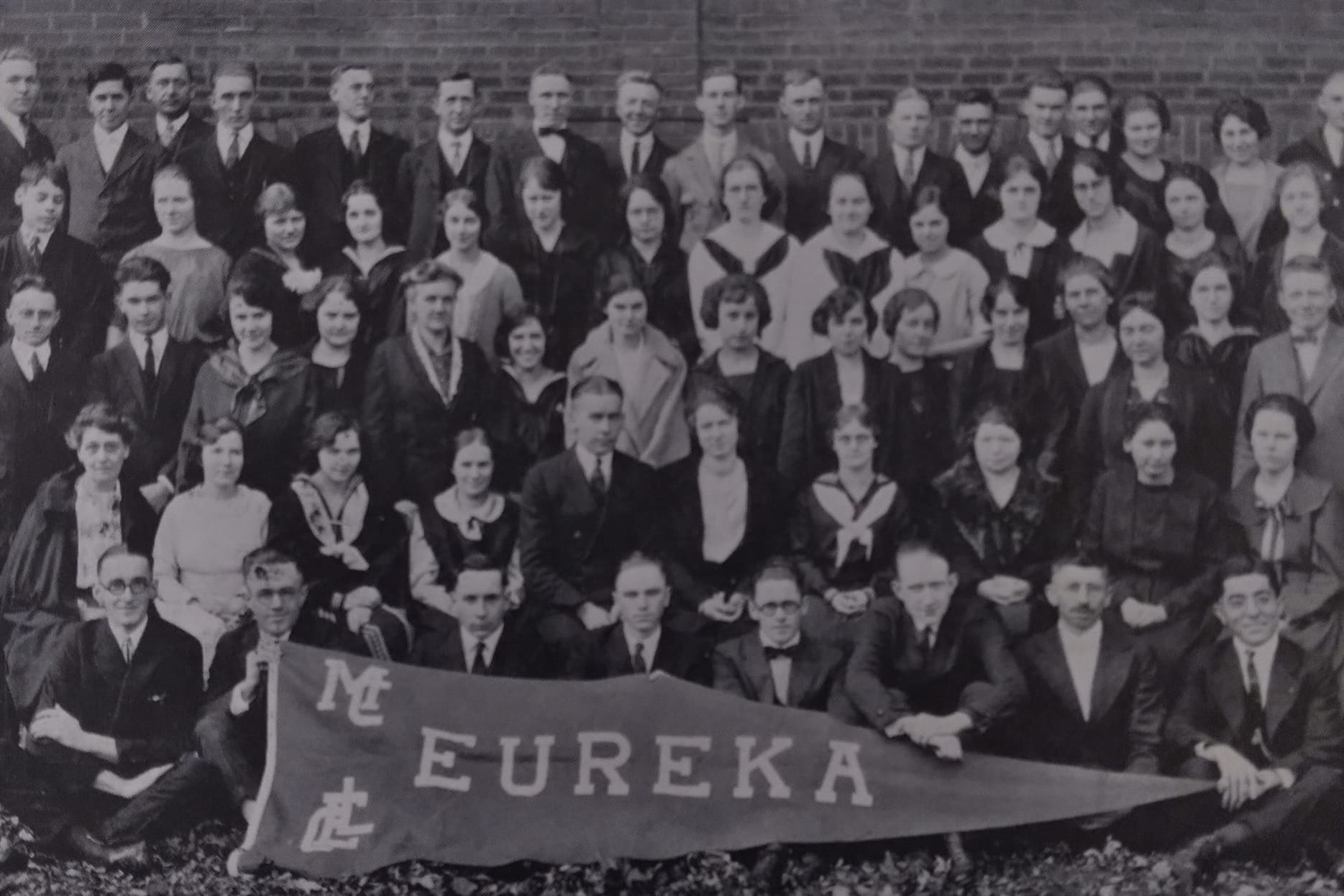
Herman’s father, Dan, was hired as the superintendent of buildings and grounds in Marion College’s first year, doing almost all of the work to care for Marion College’s physical location. Meanwhile, Beth’s father, John, was hired as the college treasurer. Both John Williams and Dan Baker worked closely together and so between that and their shared love of music, it was perhaps inevitable that Herman and Beth would eventually meet.
In 1922, Beth was named the maid of honor for the May Day fete, while Herman was named director of choir, chorus, and orchestra. For the next two years, Baker served in this role while completing his two-year public-school music course. He continued to grow his musical expertise between semesters, spending the summer of 1923 in Winona Lake, studying with influential choral director John Finley Williamson. By the time he graduated in 1924, Baker had turned the Marion College Orchestra into a resounding success.
For the next two years, Baker completed his bachelor’s in music education at Northwestern University, as Marion College had not yet been able to establish that degree. While there, he also served as a member of the school’s a cappella choir and as the choir director for two different churches. During this same time, Beth Williams continued on at Marion College, participating in the expression, voice, and piano musical groups during 1924 and in the chorus during 1925, as well as serving as a proud member of the Amphictyon Literary Society’s leadership.
In 1926, Beth Williams graduated from Marion College while Herman Baker became the director of voice and public school music at Houghton College. Over the course of the next three years, Baker taught music classes as well as choir, instructing a variety of students including Houghton Glee Club member George Beverly Shea. Unfortunately, Shea had to leave the school in 1929 due to financial hardship. Not long after, Baker also left, heading back to Marion College. Although Baker didn’t continue teaching Shea, his former student would eventually go on to become a world-renowned singer connected to evangelist Billy Graham and receiving 10 Grammy nominations, a Lifetime Achievement Grammy Award, and an induction into the Gospel Music Hall of Fame.
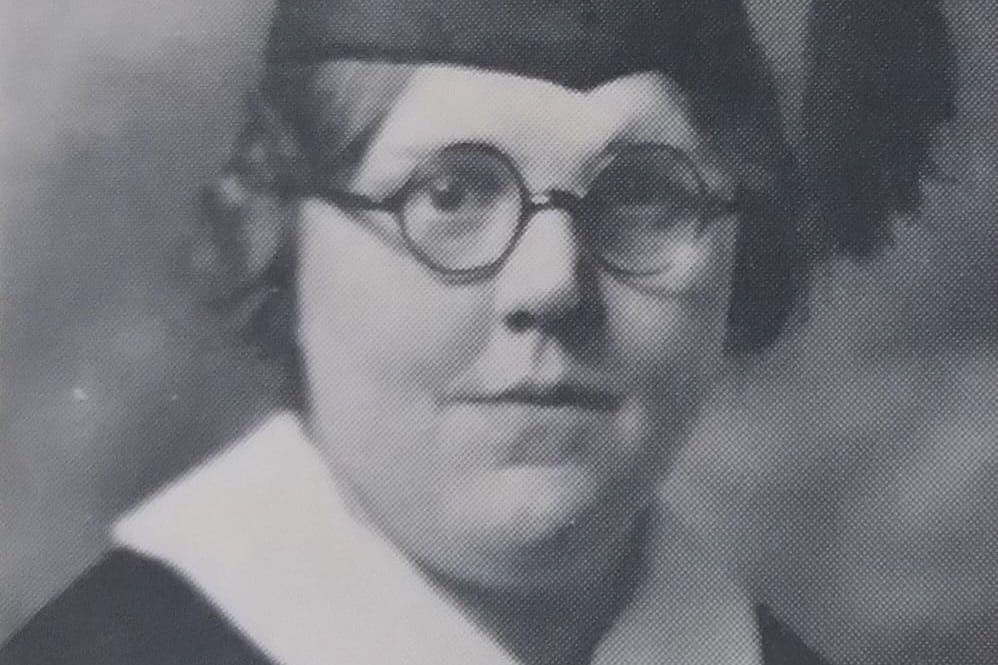
In 1930, Baker became Marion College’s director of music. In this role, he found himself now working alongside both his father and John Williams. The current acting president, Henry West, recognized both Baker’s passion for music and his deep commitment to the college. As such, it seemed like an obvious choice to hire him for this role, and as West looked ahead — his own declining health on the horizon — finding strong individuals to help steward the college’s future was essential.
During his first year as director of music, Baker oversaw immediate growth in the music department and increased representation of Marion College’s musical talents in churches throughout the area. He and fellow faculty member Grethen Thomas Parker, who taught piano and organ, made considerable strides in transforming the department in just one year. By the following academic year, Baker had been named Dean of the Music Department.
“Music is an art of such an unusual nature that everyone should study it,” Baker is quoted as saying. Because of his deep love for music and firm belief that it held distinct benefits for all individuals regardless of career paths, he quickly became a firm advocate for a school of music being created of the same scale as the school of theology and the normal school (which housed most programs at the time).
In the early years, Baker taught music to as many students as possible, but also began a long-standing tradition of taking Marion College’s music talents on the road, starting by building various groups. By the spring of 1932, the chorus was made up of roughly 120 individuals, a 20 student men’s glee club had been organized —performing in churches across Indiana, Ohio, and Cincinnati 25 times per semester.
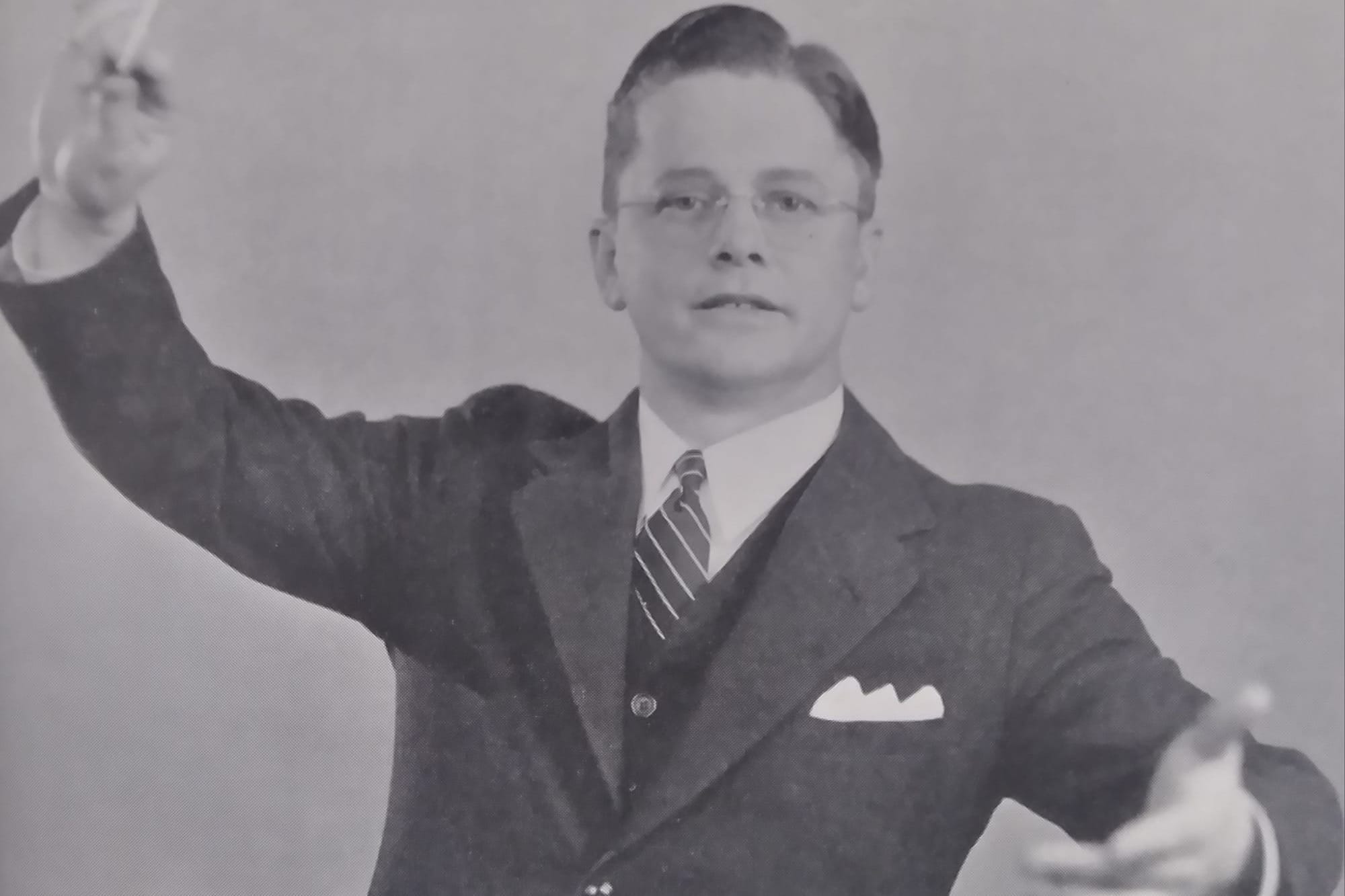
By 1933, Marion College’s annual yearbook The Marionette lauded Baker for having grown the music program so much — highlighting the roughly 35 programs on and off campus, a six program music lecture series, and more. Of Baker, it said, “His knowledge of music alone could not make him the successful director that he is. A genuine love for music, the ability to create in others the love of singing, a cheerful personality, untiring energy — all these have their part in his success.”
This was also the period of time when the Marion College Community Chorus was created, with the aim of building connections between the school and the surrounding community. Through this chorus, individuals who weren’t otherwise part of the college were able to find community within it and build connections that strengthened the bond between Marion and the college.
Baker stated at the time that the School of Music’s aim was to not only provide a practical education in the science and art of music, but to also prepare students for professional careers and foster their creative spirit. The fact that the BA in music and the BS in music provided two different avenues of learning for students was very helpful for ensuring the best education was being provided to each student, and the two-year public school music course which was added only increased growth. Through both private and class instruction, Baker and his department were also able to provide vocal and piano training to both members of the Marion College community and the wider Grant County community as well, allowing for new ministry opportunities.
“It is the desire of the School of Music of Marion College to be of the greatest service to the church,” Baker said of the department during this period. “Greater emphasis is placed on the practical functioning of the church today than formerly, and music is one of the avenues through which the church can reach and promote the social and spiritual interests of the community it serves. Music has always played a most important part in the religious life of the world, in awakening belief, strengthening faith, and stimulating worship. Since the ministry of church music should be in the care of devoted and adequately trained musicians, those students desiring preparation for service in this field of activity are finding the Music Department fully organized to meet their need.”
By 1934, the Marion College Community Chorus performed numerous Easter and Christmas performances every year and boasted over a hundred members. Now offering two glee clubs, an orchestra, church choir, large chorus, multiple degrees, private and class training, and a public-school class, the School of Music was flourishing in ways that would have seemed impossible a decade prior.
Thanks to the foresight of acting president Henry West, Baker had not only returned in a faculty role but was empowered to lead the music program to new heights. When West passed away the following year, Herman Baker served as a pallbearer.
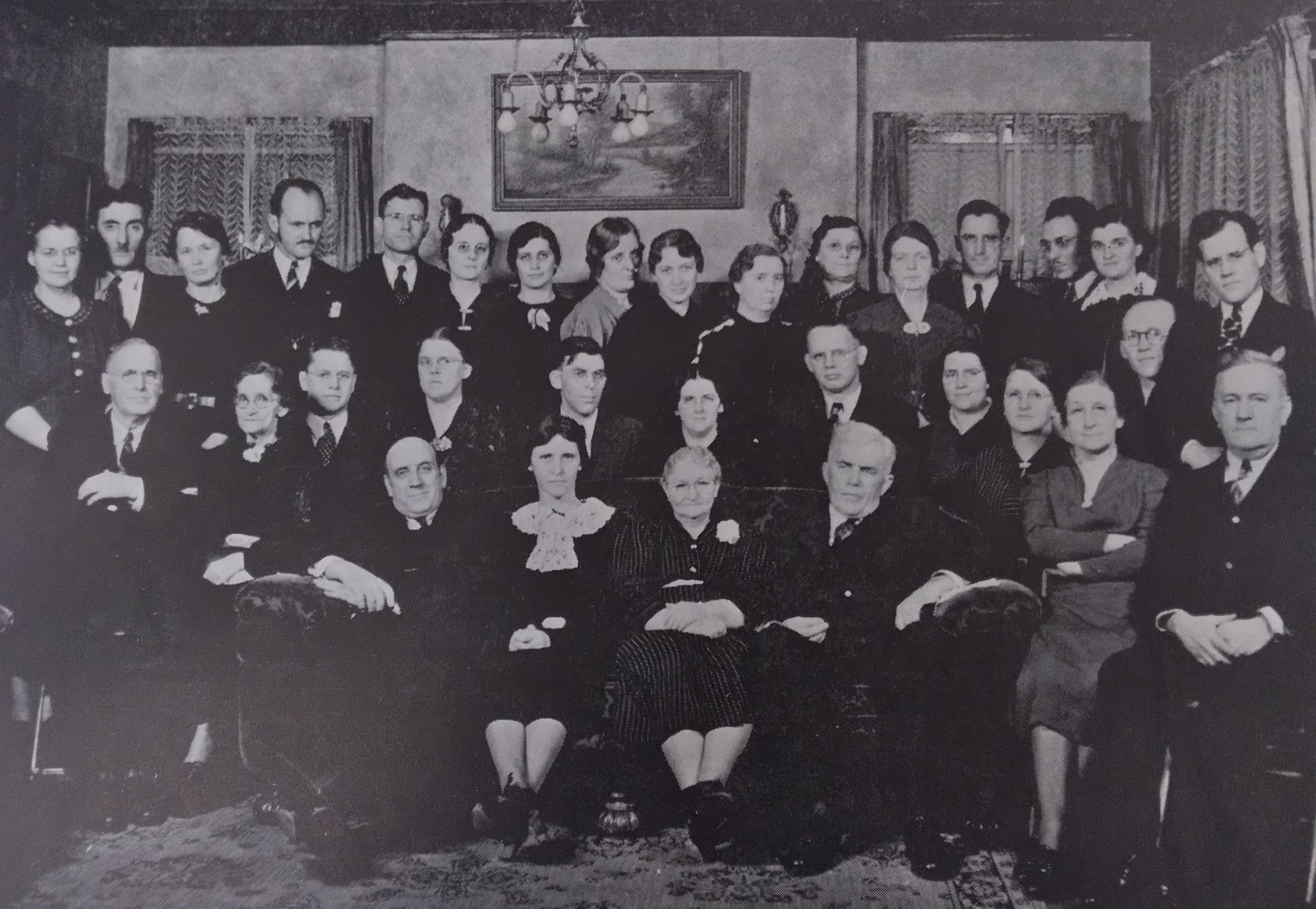
Later that year, the Marion College Faculty Club was created, with Herman and Beth Baker (now married) both serving as members alongside their respective fathers. In the years that followed, Baker continued stewarding and growing the School of Music, one particularly notable highlight being when he led music during a chapel service soon after V-E Day in 1945. The following year, both Dan Baker and John Williams retired from Marion College.
During the early 1950s, Beth Baker’s mother died, and the couple moved into the Williams’ home to care for John. Not long after, Beth and Herman’s daughter Wilma became a Marion College freshman, extending the family’s connection to the university to a third generation. Wilma would go on to eventually marry Jim Wilson — one of Baker’s Varsity Quartet members.
By the mid-1960s, Baker was arriving at the tail end of a 40-year career. In 1964, one of Baker’s most foundational professors, famed musician and conductor John Finley Williamson, suddenly passed away. Less than two years later, Baker retired.
In 1966, June 4th was officially named Herman Baker Day at Marion College as a symbolic way of honoring the man who had helped grow the school’s music program for 36 years, traveled the country with hundreds of choir members and made music a vital part of the school’s identity. One of the qualities most associated with Baker, both during his time at Marion College and long after, was faithfulness — something he had demonstrated in large amounts over the decades.
A seminar room in the newly constructed library (now Goodman Hall) was designated the Herman Baker Room as an additional way of honoring his legacy on campus, and today Indiana Wesleyan University’s Phillippe Performing Arts Center includes the Baker Auditorium, named in his honor and featuring a large portrait of him between its entrances.
While Herman Baker would eventually pass away in 1983, his legacy continues to this day in the memories of his former students.
“I wasn’t initially set on a music major when I started, but the encouraging mentorship of Professor Baker and the experiences he provided solidified my passion,” shared MC graduate Charles Kenworthy. “Professor Baker gave me chances to not only perform, but to teach as well. I felt so well-prepared when I started my 30-year teaching career.”
“My time at Marion College was greatly shaped by Professor Baker,” said graduate Glen Porterfield. “I took voice lessons with him and became the bass singer in the choir. My experiences in the music program had a profound impact on my life. The teaching and mentorship of Professor Baker was instrumental in molding me into an effective choir director and worship leader.”
Indiana Wesleyan University graduate, faculty member, and historian Marjorie Elder once noted that she believed Herman Baker’s influence on Indiana Wesleyan University would never be properly measured this side of eternity. There is a high likelihood she was correct.




